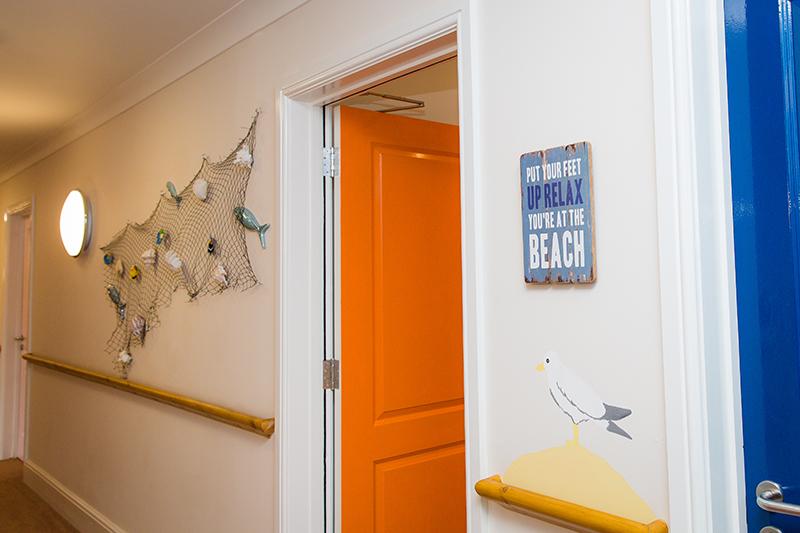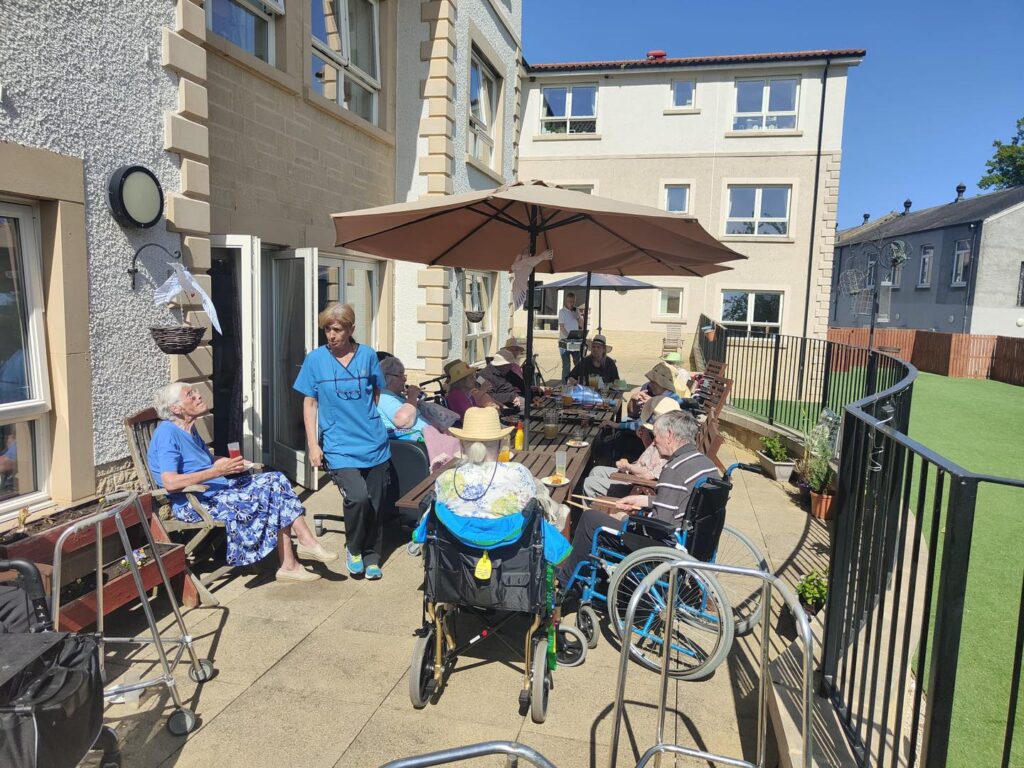When Should Someone with Dementia Move into a Care Home?

It is never an easy decision to know when to move a loved one with dementia into a care home as there are many things to consider.
To start with, you'll need to understand what level of dementia care a person needs depending on the stage they're at. Dementia is a progressive neurological condition that affects a person in a number of ways, such as memory, cognitive skills, speech and decision-making. Over time, dementia puts a strain on an individual's daily living and will eventually find it very difficult to complete daily tasks alone. They will therefore need assistance from family members, friends or caregivers.
Dementia not only impacts the person living with the condition but also their loved ones. As the condition progresses it often gets to a stage where it's too difficult for family members to cope on their own, and they may seek temporary or full-time care in a care facility.
Within this blog, we look at the main factors to consider when deciding if and when a loved one should move into a care home.
A Family Member Struggling To Provide Care Alone
Ultimately, caring for someone with dementia becomes a full-time job as the symptoms become progressively worse, which can negatively impact a caregiver's mental and physical health. Burnout, exhaustion and stress are common experiences of being a carer which could prevent someone from providing the best care possible.
When living in a residential care home, a person will have access to 24-hour care from a team of healthcare professionals and qualified nurses who have gone through a series of dementia care training. This kind of support will enable families to spend quality time with their loved ones without having to provide 24-hour personal care and support like they may have done in the past.
When The Environment Is No Longer Safe
One of the most important factors when deciding if a person with dementia should go into a care home is if they may cause harm to themselves or others at home. Due to the progression of the condition and the effects it has on a person's mental capacity, a loved one can become disorientated, confused and forgetful. When living in your own home with dementia, a person can be at risk of safety incidents like leaving the hob on or getting lost trying to return home or leaving the door unlocked.
If this starts happening it is in the individual's best interest to move to a home where they can live safely. Many care homes will have dedicated dementia units or specific dementia floors that will have trained staff on hand every day to ensure residents are safe and can continue to live independently for as long as possible.
Finances & Dementia
The cost of living crisis is affecting many people living in the UK and a person living with dementia will likely find it difficult to comprehend the rising increase in costs leaving them feeling confused and worried about their financial situation.

When living in a care home or nursing home, you can continue to live life the way you to want to but will no longer have to worry about managing finances. In a care home, you pay a fixed fee each month when living in a care home where all finance administrative duties are taken care of by staff.
It is a well-known fact that care homes and nursing homes are expensive. If someone can't afford to pay for care home fees there are several funding options available that may be offered to help someone. These include funding from the local authority and NHS continuing healthcare. NHS Contiuing Healthcare conduct tests on a person's mental and physical state to decipher if a person has a primary health need. If someone is deemed eligible will be fund a person's care without taking to consideration their income or assets. Funding that's provided by your local authority is based on an individual's property and financial affairs to assess if they are above or below the threshold and whether they are eligible for full or partial funding.
Minimal Social Contact
People with dementia can often feel lonely due to a lack of social contact in day-to-day life. All of this can contribute to a decline in someone's mental health which can lead to depression and individuals may decline at a much faster rate.

Being surrounded by staff members who provide specialist dementia care means dementia residents are in the best place to receive high-quality care for their needs. Living in a residential setting in a care home helps individuals find joy in everyday life again where they can be surrounded by other residents who share similar interests. Loved ones can regularly visit where they can receive as much support as possible.
Finding A Care Home That Can Provide Dementia Care
Finding the perfect care home can be difficult, especially if you're unsure of the best time someone needs to go into a care home. Any move should be well considered and a plan of action should be put in place.
Every single care home is different therefore the types of care and levels of care will differ too. When looking at homes it is important to understand the level of care your loved one requires by working out what stage of dementia they're at; a medical professional will also be able to help if you are unsure. It's essential that your loved one gets the care and support they require for better health and well-being.

Other things to consider are location, the cost of fees and the amenities offered within a home. Quality care will always be a first priority but it's important to consider other things so that you can meet your relative's overall well-being as much as possible as location and facilities can impact this.
Independence
Often people think that moving into a care home means a person's independence will be stripped. It is important that the staff in a care home supports a person in their daily life and encourages them to do things independently if possible.
When searching for a care home, it is important that you involve the person in the decision process as much as possible so they can tell you what their preferences and get a feel for their surroundings when you initially visit a home.
Communication Is Key
A person's mental capacity is hindered greatly when they have dementia, so it is important that you explain things in a simple way so that a person can understand what is happening as much as possible to reduce any stress or agitation. During the early to mid stages of dementia, it's highly recommended the best thing to do is to acquire lasting power of attorney which gives a person the legal power to make decisions on behalf of the person living with dementia if they lack mental capacity.
Familiarity
Having dementia can cause disorientation which can make a person feel confused and agitated in their environment, therefore it's important to choose a location that is familiar to them as this will help an individual settle into their new home. A care home resident will have a private bedroom and staff will help residents settle into their own room.

A dementia floor or unit will often be specifically designed to provide a calming and engaging atmosphere for those with dementia. Clear signs above doors, contrasting furniture, natural lighting and memorabilia are a few examples of a dementia-friendly floor.
Continuity of Care
To ensure all care needs are met under one roof, it is important to choose a care home that care continues to care for a person's needs as dementia progresses. For example, often people who get to the advanced stages will need assistance from a qualified nurse, and so will require nursing care.

Care home management will carry out a needs assessment beforehand to confirm whether or not they can support a person's needs to the best degree. If they can meet an individual's needs, they will create a personalised dementia care plan following admission which will be regularly reviewed for when care needs change or develop.
Dementia Care at Haddington Care Home
Haddington care home is purpose-built care home located in Haddington, East Lothian. We are proud to have a dedicated team of healthcare professionals and qualified nurses that work as a team to provide outstanding Dementia Care as well as Residential Care, Nursing Care and Respite Care.
Our home's ethos is to provide an improved quality of life for our residents. We achieve this through the specialist care we provide and the activities we offer on a daily basis. For our dementia residents, we have a wide range of dementia-friendly activities and therapies to accompany residents' well-being within a safe and supportive environment.

The team at Haddington Care Home is dedicated to ensuring our residents flourish under our care, by providing a homely feel and luxury setting. From 24/7 personal care and medical care, to stimulating mental and emotional well-being, our loving staff is here to provide support to both you and your loved one as we extend our support to family members during what is inevitably a difficult time.
Talk to a Member of the Team
If you require any further information about our dementia care services or the facilities we provide we would love to answer your questions. Contact our friendly team by emailing info@haddingtoncarehome.co.uk or calling 01620 674880.




